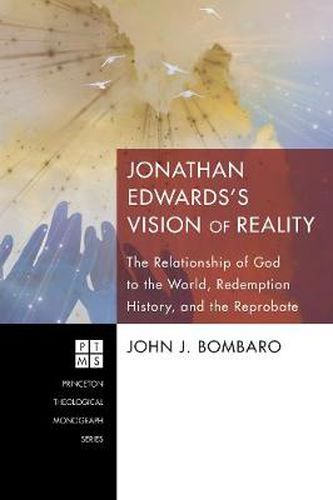Readings Newsletter
Become a Readings Member to make your shopping experience even easier.
Sign in or sign up for free!
You’re not far away from qualifying for FREE standard shipping within Australia
You’ve qualified for FREE standard shipping within Australia
The cart is loading…






This title is printed to order. This book may have been self-published. If so, we cannot guarantee the quality of the content. In the main most books will have gone through the editing process however some may not. We therefore suggest that you be aware of this before ordering this book. If in doubt check either the author or publisher’s details as we are unable to accept any returns unless they are faulty. Please contact us if you have any questions.
Since the publication of Sang Hyun Lee’s revolutionary commentary, The Philosophical Theology of Jonathan Edwards, scholars have considered the possibilities of understanding Jonathan Edwards’s thought in terms of dispositional laws, forces, and habits. While some scholars reject the notion of a dispositional ontology in Edwards, others have taken the concept of disposition in his thought beyond the usage the Northampton minister ever indicated, especially with respect to soteriological considerations. The preacher of Sinners in the Hands of an Angry God is made to be an inclusivist, if not a crypto-universalist.Jonathan Edwards’s Vision of Reality substantiates that Edwards, in an effort to combat deistic and materialistic Enlightenment paradigms, employs dispositions in his philosophy, but that his radical theocentrism and Calvinistic particularism established its boundaries within his apologetical reconsideration of spatiotemporal and metaphysical reality. Within his spiritual vision of reality, Edwards leaves no stone unturned: history and even the reprobate find inherent value and a positive functional role not only in God’s program of self-glorification but as manifestations of divine being–the damned are deformities in God. The logic of Edwards’s theocentric vision of reality pushes his ideas to the limits of acceptable Reformed orthodoxy, and sometimes beyond those limits.
$9.00 standard shipping within Australia
FREE standard shipping within Australia for orders over $100.00
Express & International shipping calculated at checkout
This title is printed to order. This book may have been self-published. If so, we cannot guarantee the quality of the content. In the main most books will have gone through the editing process however some may not. We therefore suggest that you be aware of this before ordering this book. If in doubt check either the author or publisher’s details as we are unable to accept any returns unless they are faulty. Please contact us if you have any questions.
Since the publication of Sang Hyun Lee’s revolutionary commentary, The Philosophical Theology of Jonathan Edwards, scholars have considered the possibilities of understanding Jonathan Edwards’s thought in terms of dispositional laws, forces, and habits. While some scholars reject the notion of a dispositional ontology in Edwards, others have taken the concept of disposition in his thought beyond the usage the Northampton minister ever indicated, especially with respect to soteriological considerations. The preacher of Sinners in the Hands of an Angry God is made to be an inclusivist, if not a crypto-universalist.Jonathan Edwards’s Vision of Reality substantiates that Edwards, in an effort to combat deistic and materialistic Enlightenment paradigms, employs dispositions in his philosophy, but that his radical theocentrism and Calvinistic particularism established its boundaries within his apologetical reconsideration of spatiotemporal and metaphysical reality. Within his spiritual vision of reality, Edwards leaves no stone unturned: history and even the reprobate find inherent value and a positive functional role not only in God’s program of self-glorification but as manifestations of divine being–the damned are deformities in God. The logic of Edwards’s theocentric vision of reality pushes his ideas to the limits of acceptable Reformed orthodoxy, and sometimes beyond those limits.